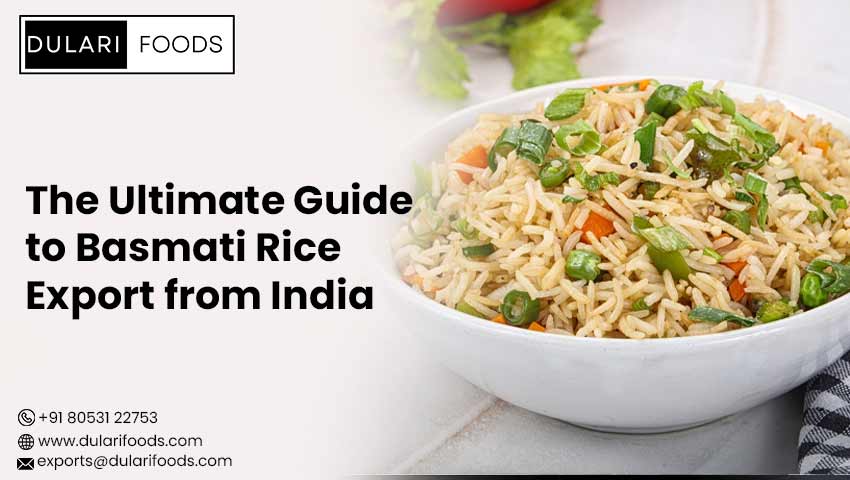Basmati rice praised all over the globe for its long grains, special aroma, and unique texture, has been part of the kitchen across countries for ages. Hailing from the Indian subcontinent, it has become a trendy commodity, especially in the Middle East, Europe, and North America. Reports indicate that as of March 2023, India controlled more than 70% of world basmati rice exports. With an immense history and current demand worldwide, Basmati rice has placed itself in the niche of prominent food items in the world market.
In this blog, we will see why India has been the most preferred for Basmati rice exports and how you can finalize an exporter who will meet your needs.
Why is India best for Basmati Rice Exporting?
The reputation of India as the best Basmati rice exporter is not a coincidence and it is because the country is well equipped in terms of climate, experience, and soil that have been proven over centuries. The main consumers of Basmati Rice Export from India are the Middle East, the USA, and other parts of Europe, where its biggest markets include Saudi Arabia, UAE and Iran. With worldwide consumption growing for higher-grade rice, India continues to be the default supplier to these markets, guaranteeing regular flowing exports.
Benefits of Exporting Basmati Rice from India
Established Supply Chain: Economically, India is known to house a Basmati rice supply chain that is well coordinated. The country has the infrastructure to plant, harvest, process, and export the rice. American buyers always go for Indian basmati rice due to its quality, long grain, and fragrances that subsequently make Indian basmati rice very hearty.
Competitive Pricing: Indian exporters provide competitive pricing as compared to other rice-producing countries, which offers low costs for buyers in the end.
Favorable Trade Agreements: The country has a variety of trade agreements and duty advantages with different countries that make export processes easier.
Large-Scale Production: Due to Basmati production on millions of hectares of land, India provides an uninterrupted supply of Basmati rice throughout the year.
Steps to Find the Right Exporter
Research and Market Understanding: Before making a step to choosing an exporter, it is important to note the demand for Basmati rice as well as other varieties of rice to be exported.
Evaluate Exporter Reputation: Go for exporters who have been in the business for a long with positive complaints from buyers and good relations with supplier sources as well as other buyers.
Verify Quality Standards: Confirm that the exporter meets various required international standards, such as ISO, FSSAI, and other food safety certification bodies.
Check Logistics and Shipping: It is best to select an exporter who has an effective shipping process that delivers on time and communicates clearly.
Ask for Samples: It is wise to request samples before the deal is finalized to identify the quality and whether it matches that of the intended market.
Negotiate Terms: Have negotiations on price, payment methods, time of delivery, and contracts so that nothing is vague and everything is satisfactory for both parties.
Conclusion
To sum up, we can see that India is best to export basmati rice from, due to rice quality and huge production potential. If you are looking for someone who does Basmati Rice export from India, Dulari Foods is the Premium and Best Basmati Rice Exporter and Supplier. We believe that every meal is an opportunity to create a memorable experience.




